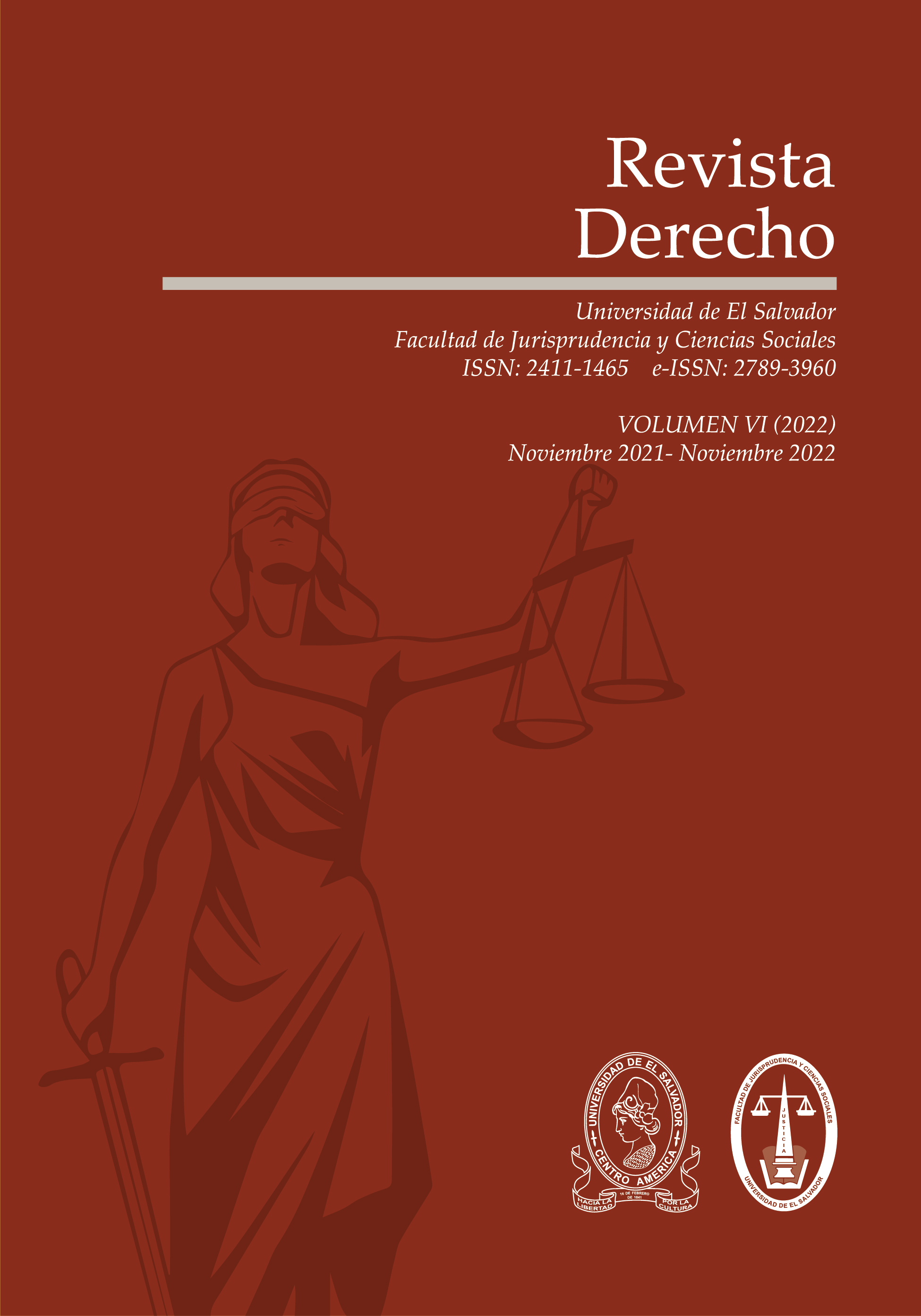NGO’s, money laundering and terrorist financing
Keywords:
Not-for-Profit Organizations, Financial Action Task Force, Recommendation 8 , Money Laundering, Terrorist Financing, Due Diligence, National Risk AssessmentAbstract
The development of anti-money laundering and anti-terrorist financing regulations aimed at non-profit organizations as a result of international instruments aimed at combating corruption and drug trafficking, as well as powerful countries that make up the G7 from which the Financial Action Task Force (FATF) was created, entity that in turn develops the international standards that seek to eradicate such crimes has led to the creation of regulations in El Salvador as part of the State’s commitments to implement measures aimed at eradicating practices that allow the commission of money laundering and financing of terrorism. In this sense, it is advisable to enforce some obligations so that El Salvador, in accordance with the FATF standards, can effectively comply with them, based on one of the recommendations of the international organization, such as conducting a National Risk Assessment. In addition, brief reflections are made on the implications of anti-money laundering regulations for non-profit organizations as part of the entities subject to them and that these, in turn, do not affect the human right to freedom of association.With the implementation of the new Instructions of the Financial Investigation Unit in contrast to Recommendation 8 and its FATF Interpretative Note, comments are made on the possible repercussions that the new obligations may have for organizations with low human and financial capacity to comply with the new requirements, in view of this, there is constant insistence on carrying out an effective National Risk Assessment that would allow specific regulations to be directed to NGOs with certain characteristics and not to the universe of NGOs.
Downloads
References
Asamblea General de las Naciones Unidas, resolución: A/RES/49/60, (1995).
Consejo de Seguridad de las Naciones Unidas, Resolución S/PV.8496. 2019.
Convenio Internacional para la Represión de la Financiación del Terrorismo. (2003).
Convenio Internacional para la Represión de la Financiación del Terrorismo: Asamblea General de las Naciones Unidas, 1999.
Corte Interamericana de Derechos Humanos, caso trabajadores cesados del congreso (Aguado Alfaro y otros) Vs. Perú. 2006.
Declaración Universal de los Derechos Humanos, Organización de las Naciones Unidas. 1948.
Evaluación Nacional de Riesgos, 2020, “La posibilidad de las OSFL ́s de cometer actos de FT”. México. 2020.
GAFI: Lucha Contra el abuso de organizaciones sin fines de lucro (Recomendación 8), Mejores prácticas. 2015.
Instructivo de la Unidad de Investigación Financiera para la prevención del lavado de dinero y financiamiento al terrorismo, Código: INUIF-16, artículo 14 No. 13. Disponible en: http://bit.ly/2KJev9t
Instructivo de la Unidad de Investigación Financiera para la prevención del lavado de dinero y de activos. El Salvador: Fiscalía General de la República, 2021.
Ley Especial Contra Actos de Terrorismo. El Salvador: Asamblea Legislativa de El Salvador, 2006.
Maina Kai. “Informe del Relator Especial sobre los derechos a la libertad de reunión pacífica y de asociación”, A/HRC/20/27, (2012).
Organización de las Naciones Unidas. Declaración Universal de los Derechos Humanos. 1948.
Recomendación 1. “Estándares internacionales sobre la lucha contra el lavado de activos, el financiamiento del terrorismo, y el financiamiento de la proliferación de armas de destrucción masiva”. Acceso el 14 de septiembre de 2022, https://www.gafilat.org/index.php/es/las-40-recomendaciones
Recomendación 5. “Estándares internacionales sobre la lucha contra el lavado de activos, el financiamiento del terrorismo, y el financiamiento de la proliferación de armas de destrucción masiva”. Acceso el 14 de septiembre de 2022, https://www.gafilat.org/index.php/es/las-40-recomendaciones
Recomendación 8. “Estándares internacionales sobre la lucha contra el lavado de activos, el financiamiento del terrorismo, y el financiamiento de la proliferación de armas de destrucción masiva”. Acceso el 20 de febrero de 2021, http://bit.ly/2ZRNwjo
Respuesta a solicitud de acceso a información pública referencia 21-UAIP-FGR-2020.
Sala de lo Constitucional, Sentencia de Inconstitucionalidad, Referencia: 22-2007/42- 2007/89-2007/96-2007. El Salvador: Corte Suprema de Justicia, 2015.
Downloads
Published
Issue
Section
License
Copyright (c) 2022 Revista Derecho

This work is licensed under a Creative Commons Attribution-NonCommercial 4.0 International License.
The authors transfer the copyright rights in favor of the Faculty of Jurisprudence and Social Sciences of the University of El Salvador (through Aequus Editorial) to include their writing in Revista Derecho.








